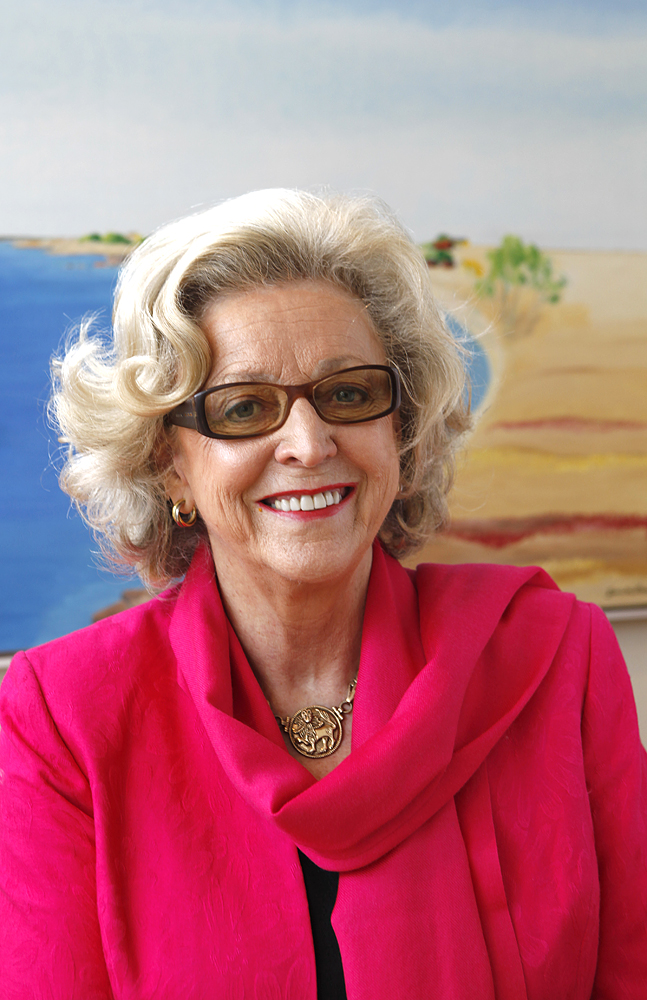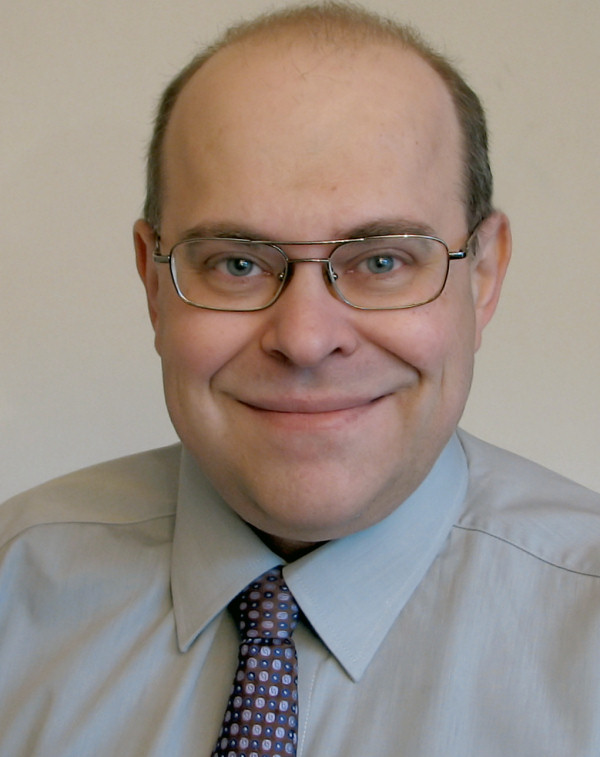|

The Web Based Communities and Social Media International Conference 2013 (part of the IADIS Multi Conference on Computer Science and Information Systems 2013) was held in Prague, Czech Republic, 24 to 26 July, 2013.
The World Wide Web has migrated from information space into opportunities for social communication. Social Media are growing rapidly and play an increasingly important role in the development of Online Communities. They are all about identity, reputation, presence and relationships. Web based communities announce themselves both in our professional and private life through several new media such as LinkedIn, Twitter, Plaxo, etc. In order to keep up to date with the pace of these new technological developments this IADIS Conference offers a dedicated overview and informative discussion on today's most relevant issues in new media for social life on the web.
 The mission of this conference was to publish and integrate scientific results and act catalytically to the fast developing culture of web communities, while helping to disseminate and understand the latest developments social media and their impact. Submissions were accepted under the following six main topics: The History, Architecture and Future of Virtual Communities; Group Processes and Self-Organization; Cyborgs, Teleworking, Telemedicine; Art Games and Learning Communities; Expanding Markets Through Virtual Communities; Virtual Communities for People with Special Needs and Social Media The mission of this conference was to publish and integrate scientific results and act catalytically to the fast developing culture of web communities, while helping to disseminate and understand the latest developments social media and their impact. Submissions were accepted under the following six main topics: The History, Architecture and Future of Virtual Communities; Group Processes and Self-Organization; Cyborgs, Teleworking, Telemedicine; Art Games and Learning Communities; Expanding Markets Through Virtual Communities; Virtual Communities for People with Special Needs and Social Media
This event received 58 submissions from more than 17 countries. Each submission had been blindly reviewed by an average of four independent reviewers, to ensure that accepted submissions were of a high standard. Consequently only 8 full papers were approved which meant an acceptance rate of 12 %. A few more papers were accepted as short papers, reflection paper and poster demonstrations. Extended versions of the best papers will be published in the in International Journal of Web Based Communities" (IJWBC); ISSN: 1477 - 8394 (4 issues per year) and also in other selected journals, including journals from Inderscience.
Besides the presentation of full papers, short papers, reflection paper and posters/demonstrations the conference also included two keynote presentations given by Dr. Valeri Souchkov, ICG Training & Consulting Enschede, The Netherlands and Professor Gunilla Bradley, Professor Emerita, Royal Institute of Technology, Sweden. In addition, Web Based Communities and Social Media 2013 featured two workshops on "Online servant-leadership: myth or reality?" by Dr. Sylvia van de Bunt-Kokhuis and Prof. David Weir and "Common Research Ground in Social Innovation?" by Pat van der Jagt, Alterra, Wageningen UR and Mark Verhijde, Program Manager Urban Development.

"WHAT IS QUALITY OF LIFE IN THE ICT SOCIETY?"
by Gunilla Bradley,
Professor Em, Royal Institute of Technology, Sweden
Abstract
Some issues that will be addressed are:
• Main changes in people´s lives – structures and roles. What changes are going on in the professional, private and citizen's role? How can we balance our various roles at the increasing convergence of them? Important contributing factors to Quality of Life and how to achieve.
• Main changes in the labour market – work force in the so-called flexible companies. New ways to influence our work life conditions as well as to contribute to societal change.
• Impact of network organizations on human behavior, values, motivation and feelings. Our relation to space and time, what kind of stress? Dialectics of values and life styles.
• Some trends in psychosocial communication and ICT, collaboration and global communication patterns. The home as a communication sphere in the network era - new opportunities and risks.
• Convergence and acceleration are main processes at the interplay between technology, societal structure, organizational design, and human roles in the society. I will reflect on the convergence theory and the discourse in Media Technology and Informatics about the present power relations and movements globally. I will present reflections on risks and opportunities in the 21 st Century ICT society. Where are the "energy centers" that can activate and create changes towards the "Good Information Society"? Can agreements on Goals and Visions for that society be achieved?

"INNOVATIVE PROBLEM SOLVING FOR SOCIAL APPLICATIONS: A STRUCTURED APPROACH"
by Valeri Souchkov,
ICG Training & Consulting Enschede, The Netherlands
Abstract
Social arrangements in societal participation like care, education and cultural events often undergo a state of "paralysis by analysis"; no logical way from perceived needs or challenges seems to lead to tasteful-, human- and altruistic solutions. In this keynote the renown expert in the TRIZ methodology for creative problem solving will take your hand and lead you through the arcade landscape of generating-, selecting and implementing ideas for social architecture and the elegant conveyance of societal processes. Often when trying to solve a problem, constraints might not allow us to apply directly or adapt existing solutions. In such cases we need to search beyond known ideas and concepts and come up with an innovative solution. To produce innovative ideas psychological barriers must be broken and solution search space has to be expanded. Without a structured approach it can take a long time and result in numerous costly trials and errors. Long-term studies of the vast amount of creative and innovative solutions resulted in the discovery of a number of universal principles and knowledge-based strategies which can be used to successfully attack difficult problems. The talk will focus on demonstrating in the interactive way how these principles and strategies can be used to facilitate and boost the process of innovative and creative problem solving in the various domains of this IADIS conference like "Web-based Communities", "Social Media", "E-Learning", "Gaming", "E-health" etc.
The Web Based Communities and Social Media 2013 Conference proceedings was published in Book (ISBN: 978-972-8939-92-2).
Program Committee Members:
Ali Fawaz Shareef, Villa College, Maldives
Allan Jeong, Florida State University, USA
Amal Zouaq, Athabasca University, Canada
Amy Hsiao, Open University Of The Netherlands , Netherlands
Anirban Kundu, Kuang-Chi Institute of Advanced Technology, Shenzh, China
Annabell Preussler, University of Duisburg-Essen, Germany
Apostolos Gkamas, University Ecclesiastical Academy of Vella of Ioan, Greece
Aris Alissandrakis, Linnaeus University, Sweden
Aris Castillo, University Tecnologica Of Panama, Panama
Bernhard Nett, University of Siegen, Germany
Boyan Bontchev, Sofia University St. Kl. Ohridski, Bulgaria
Celina Torres Arcadia, Instituto Tecnologico Y De Estudios Superiores De , Mexico
Chien-sing Lee, National Central University, Taiwan
Christian Glahn, ETH Zurich, Switzerland
Christos Bouras, University Of Patras, Greece
Christos Georgiadis, University Of Macedonia, Greece
Christos Karageorgopoulos, KETHEA, Greece
Cigdem Turhan, Atilim University, Turkey
Credine Menezes , Federal University Of Rio Grande Do Sul , Brazil
Cristiano Maciel, Universidade Federal De Mato Grosso, Brazil
Donatella Persico, Istituto Tecnologie Didattiche - Cnr, Italy
Eliza Stefanova, St. Kl. Ohridski University Of Sofia, Bulgaria
Emmanouil Stiakakis, University Of Macedonia, Greece
Enyedi Szilard, Technical University Of Cluj-napoca, Romania
Eugenia Kovatcheva, University Of Sofia, Bulgaria
Eugenio Martínez Camara , University Of Jaen, Spain
Eva Heinrich, Massey University, New Zealand
Fabio Nascimbeni, Menon Network, Belgium
Fernando Albuquerque Costa, University Of Lisbon, Portugal
Flavio Correa Da Silva, University Of Sao Paulo, Brazil
Florian Probst, University Of Augsburg, Germany
Francesca Pozzi , Istituto Tecnologie Didattiche - Cnr, Italy
Francis Brouns, Open University, Netherlands
Frederico Figueiredo, ChangeYourFlight, Spain Gabriel Valerio Urena, Tecnológico De Monterrey, Mexico
Gayle Davidson Shivers, University Of South Alabama, USA
George Alexias, Panteion University Of Social And Political Scienc, Greece
Georgios Kioumourtzis, Center for Security Studies, Greece
Giuliana Dettori, Istituto Per Le Tecnologie Didattiche, Italy
Grigorios Beligiannis, University of Western Greece, Greece
Hong Tat Ewe, University Tunku Abdul Rahman, Malaysia
Ilias Karasavvidis, University Of Thessaly, Greece
Isidro Maya Jariego, University Of Sevilla, Spain
Ismael Peña-López, Universitat Oberta De Catalunya, Spain
Jan Frick, University of Stavanger, Norway
Jesus Arias Fisteus, Universidad Carlos III De Madrid, Spain
Johanna Meurer, University Of Siegen, Germany
Jon Dron, Athabasca University, Canada
Joop Van Schie, Albeda College Rotterdam, Netherlands
Jose Janssen, Open University Of The Netherlands, Netherlands
Jose Jesus Garcia Rueda, Universidad Carlos III De Madrid, Spain
Jozef Hvorecky, City University, Slovakia
Julio Villena-Román , University Carlos III of Madrid / Daedalus, Spain
Juri Dachtera, University Of Siegen, Germany
Karen Lazenby, University Of Pretoria, South Africa
Karl Steffens, University Of Cologne, Germany
Kirsti Lindh, University Of Tampere, Finland
Konrad Morgan , Eduvate Limited, UK
Lawrie Hunter, Kochi University Of Technology, Japan
Lee Chien Ching, Nanyang Technological University, Singapore
Ljuan Marko Gashi, University Of Novi Sad, Serbia
Lorna Uden, Staffordshire University, United Kingdom
Manuel Caeiro Rodriguez, University Of Vigo, Spain
Marcello Sarini, University Of Milan-bicocca, Italy
Marcus Specht, Open University The Netherlands, Netherlands
Maria Elizabeth Bianconcini De Almeida, Pontificia Universidade Catolica De São Paulo, Brazil
Mario Rotta, E-form, Italy
Marlies Bitter-Rijpkema, Open University Of The Netherlands, Netherlands
Martin Llamas-Nistal, Etsi Telecomunicación, Spain
Michael Kerres, University Duisburg-essen, Germany
Michail Kalogiannakis, University of Crete, Department of Preschool Educa, Greece
Michalis Xenos, Hellenic Open University, Greece
Nina Kahnwald, Technische Universität Dresden, Germany
Nopphol Pauswasdi, Mahidol University, Thailand
Oliver Bohl, Kassel University, Germany
Oriol Miralbell, Open University Of Catalonia, Spain
Panayotis Fouliras, University Of Macedonia, Greece
Patrick Hoefler, Know-Center, Austria
Patrizia Ghislandi, University Of Trento, Italy
Pei-Lee Teh, Monash University, Malaysia
Pete Bradshaw, The Open University, United Kingdom
Peter Albion, University Of Southern Queensland, Australia
Peter Kraker, Know Center, Austria
Peter Smith, University Of Sunderland, United Kingdom
Philip Tsang, The Open University Of Hong Kong, China
Radojica Petrovic, Technical Faculty Of Cacak, Serbia
Rosane Aragón, Federal University Of Rio Grande Do Sul, Brazil
Sandra Lovrencic, University Of Zagreb, Croatia
Sebastian Dennerlein, Know-center Gmbh , Austria
Slavi Stoyanov, The Netherlands Open University, Netherlands
Sobah Abbas Petersen, Norwegian University Of Science And Technology, Norway
Spiros Sirmakessis, TEI of Messolongi, Greece
Spyros Polykalas, Business Administration of Ionian Island Tei , Greece
Stylianos Hatzipanagos, King's College London, United Kingdom
Tatyana Pashnyak, Bainbridge College, USA
Teemu Valtonen, University Of Eastern Finland, Finland
Tiberiu Letia, Technical University Of Cluj-napoca, Romania
Ulrich Thiel, Fraunhofer , Germany
Vaggelis Kapoulas, Computer Technology Institute & Press "Diophantus", Greece
Vanessa Dennen, Florida State University, USA
Vassilis Kollias, University Of Thessaly, Greece
Victor Lopez Cabrera, Technological University Of Panama, Panama
Viktoria Pammer, Graz University Of Technology, Austria
Vladimir Bures, University Of Hradec Kralove, Czech Republic
Wang Qiyun, National Institute Of Education, Singapore
Wilhelmina Savenye, Arizona State University, USA
Witold Abramowicz, Poznan University Of Economics, Poland
Wolfgang Gräther, Fraunhofer FIT, Germany
Zinayida Petrushyna, Rwth Aachen University, Germany
|

 The mission of this conference was to publish and integrate scientific results and act catalytically to the fast developing culture of web communities, while helping to disseminate and understand the latest developments social media and their impact. Submissions were accepted under the following six main topics: The History, Architecture and Future of Virtual Communities; Group Processes and Self-Organization; Cyborgs, Teleworking, Telemedicine; Art Games and Learning Communities; Expanding Markets Through Virtual Communities; Virtual Communities for People with Special Needs and Social Media
The mission of this conference was to publish and integrate scientific results and act catalytically to the fast developing culture of web communities, while helping to disseminate and understand the latest developments social media and their impact. Submissions were accepted under the following six main topics: The History, Architecture and Future of Virtual Communities; Group Processes and Self-Organization; Cyborgs, Teleworking, Telemedicine; Art Games and Learning Communities; Expanding Markets Through Virtual Communities; Virtual Communities for People with Special Needs and Social Media
